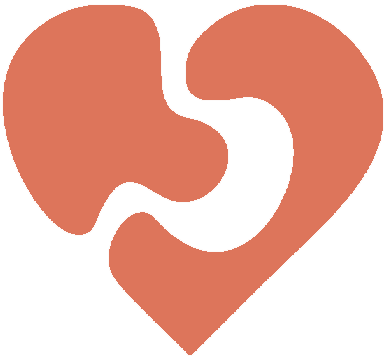Why is it important to get off PPIs?
PPIs are medications prescribed for gastro-esophageal reflux disease (GERD) and heartburn. They work by preventing the acid-secreting cells of the stomach from secreting acid. This is believed to prevent damage to the esophagus from the reflux of acidic stomach contents onto it. However, PPIs do not actually treat the reflux, and may make it worse. PPI use is also associated with increased risk of liver and gastrointestinal cancer, possibly including esophageal cancer (Tran 2023). Further, PPI use increases the likelihood of C. difficile overgrowth/infection, likely due to impairment of the gut environment conducive for a health gut microbe population (Jaynes 2019)
Long term use of PPIs is associated with kidney, bone, and possibly neurological problems, which is believed to result from mineral and vitamin deficiencies due to poor mineral uptake from the gut (Jaynes 2019). PPIs cause this because minerals including calcium, magnesium and iron are normally bound to substances such as carbonate or citrate to keep them stable. But in order to be absorbed into our bodies, the minerals must come off of the carrier, and that process requires acid. This is true for some B vitamins too. For this reason, PPIs are actually not supposed to be taken for more than 4 weeks. In those 4 weeks, patients are supposed to be working on ways to reduce the reflux.
Theoretically anyway. PPIs may slow down digestion, which increases pressure inside the stomach, which leads to reflux. So the medication can worsen the condition it is used to treat. Great business plan though! A key barrier for people who want to stop taking PPIs are “rebound effects” of artificially suppressing acid production with a drug. Acid-sensing cells in the stomach detect that there is not enough acid in the stomach, and try to drive the acid secreting cells harder. While taking the drug, this does not work, but once the drug is withdrawn you get more acid secreted normally, which is painful when refluxed. Fear of the pain keeps people on the drug.
So here is what I have heard from people who were able to get off of PPIs themselves or were able to help their patients do so:
- It is essential to reduce the dose slowly, rather than stop taking them abruptly (”cold turkey”). So the first week (or two) take one pill less, per week. The second week take two pills less per week, and so on until you are taking no pills at all. Expect the process to take about 2 months.
- In the meanwhile, address the reflux. By slowing down eating, chewing food well, and eating small meals. This can help reduce the pressure in the stomach that leads to reflux. The weakness of the sphincter between the stomach and esophagus, through with the stomach contents reflux through, can be strengthened by diaphragmatic breathing, a yoga and physical therapy technique (Zrdhova 2023).
- It has been suggested that one reason for reflux is that the stomach is not producing ENOUGH acid, slowing down digestion and increasing pressure in the stomach. Many people have told me that taking a small amount of apple cider vinegar (the kind with the “mother”) has helped them reduce reflux while getting off of the PPIs. Some people say you need to dilute it a bit, and unfortunately there doesn’t seem to be a standard brand or amount that I can pass on.
- One way to address the heartburn pain is drinking alkaline water. This likely works because the alkaline water can buffer the acidity of the reflux. This maybe the only reasonable use for alkaline water.
References
Jaynes M, Kumar AB. The risks of long-term use of proton pump inhibitors: a critical review. Ther Adv Drug Saf. 2018 Nov 19;10:2042098618809927. doi: 10.1177/2042098618809927. PMID: 31019676; PMCID: PMC6463334.
Tran TH, Myung SK, Trinh TTK. Proton pump inhibitors and risk of gastrointestinal cancer: A metaanalysis of cohort studies. Oncol Lett. 2023 Nov 20;27(1):28. doi: 10.3892/ol.2023.14161. PMID: 38073768; PMCID: PMC10698841.
Zdrhova L, Bitnar P, Balihar K, Kolar P, Madle K, Martinek M, Pandolfino JE, Martinek J. Breathing Exercises in Gastroesophageal Reflux Disease: A Systematic Review. Dysphagia. 2023 Apr;38(2):609-621. doi: 10.1007/s00455-022-10494-6. Epub 2022 Jul 16. PMID: 35842548; PMCID: PMC9888515.
